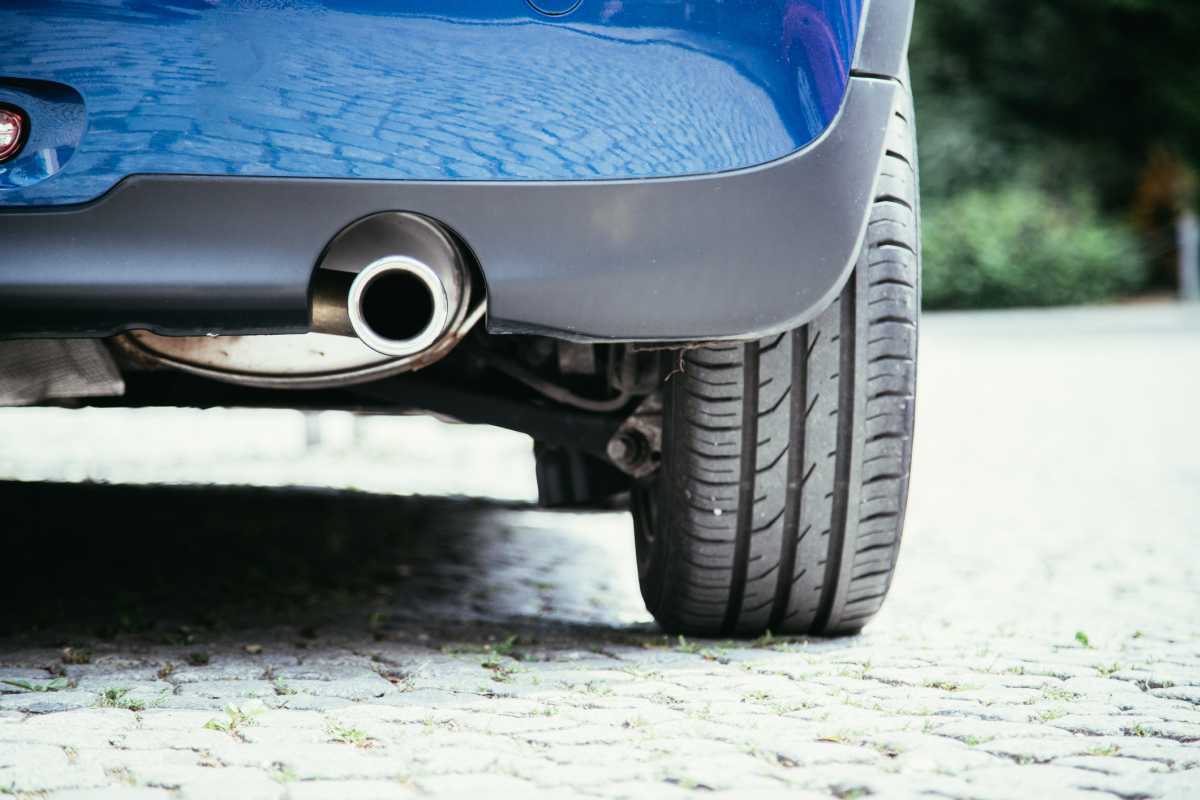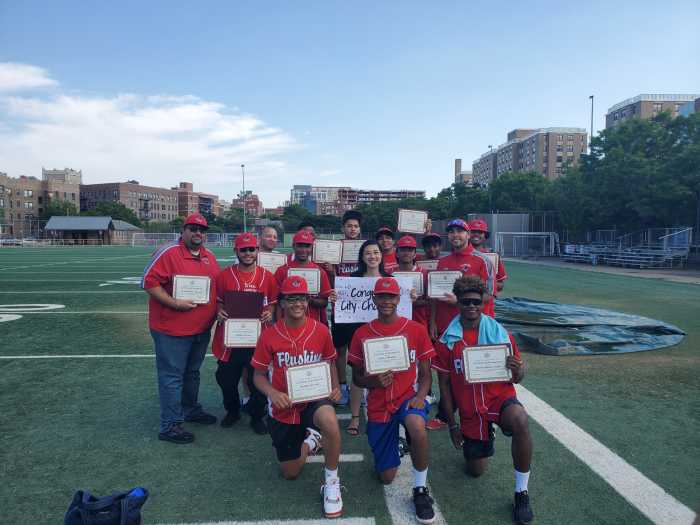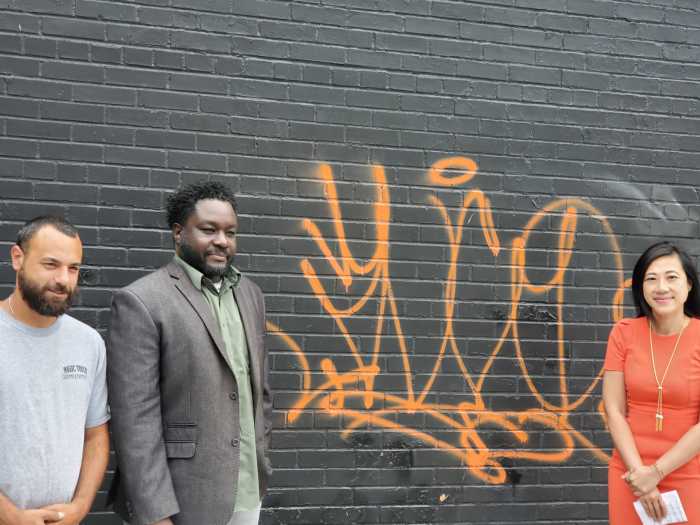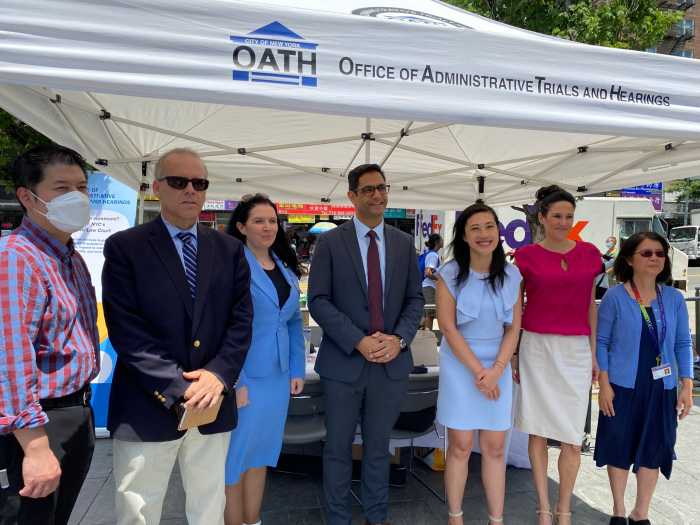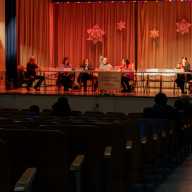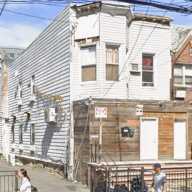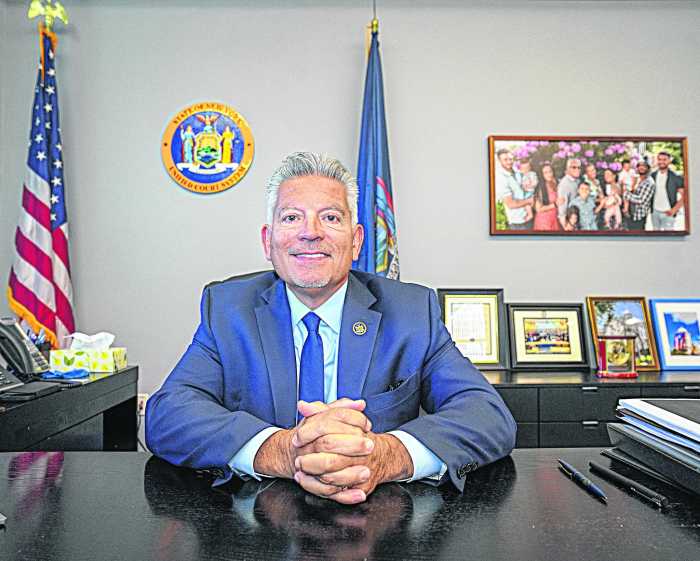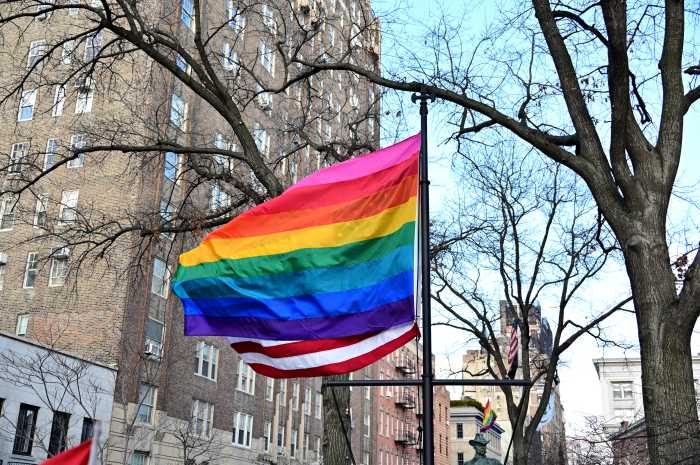City Council members Linda Lee, Sandra Ung, Erik Bottcher and Justin Brannan on May 5 introduced legislation that would increase penalties for excessive muffler or exhaust sound, honking or illegal sound-producing devices on motor vehicles.
In an effort to discourage drivers in New York City from creating unwanted noise, the penalties would be doubled under the proposed legislation.
Known as Introduction 312, penalties would be doubled for the following reasons:
- Operating a motor vehicle — other than a motorcycle — where the muffler or exhaust makes a “plainly audible” sound at least 150 feet from the vehicle;
- Using a horn or other manually, mechanically or electrically powered device that creates a sound signal on a motor vehicle other than as a signal of imminent danger or a burglar alarm;
- Using an air horn or gong installed on a motor vehicle, other than as an emergency signal device on an authorized vehicle.
Those in violation would have to pay a much heftier fine.
The legislation would bump up penalties for the first reason from a minimum of $150 and a maximum of $525 in the first offense to a minimum of $300 and a maximum of $1,050. The second offense would increase from a minimum of $300 and a maximum of $1,050 to a minimum of $600 and a maximum of $2,100. The third offense would go from a minimum of $450 and a maximum of $1,575 to a minimum of $900 and a maximum of $3,150.
For the second reason, the first offense would rise from a minimum of $150 and a maximum of $1,000 to a minimum of $300 and a maximum of $2,000. The second offense would increase from a minimum of $300 and a maximum of $2,000 to a minimum of $600 and a maximum of $4,000. A third offense would increase from a minimum of $450 and a maximum of $3,000 to a minimum of $900 and a maximum of $6,000.
For the third and final reason, the first offense would go from a minimum of $220 and a maximum of $875 to a minimum of $330 and a maximum of $1,325. The second offense would increase from a minimum of $440 and a maximum of $1,750 to a minimum of $660 and a maximum of $2,625. The third offense would increase from a minimum of $660 and a maximum of $2,625 to a minimum of $990 and a maximum of $3,950.
This proposed legislation comes in the wake of scientific studies that have identified a correlation between noise and health.
“Excessive and obnoxious vehicle noise is the bane of families’ existence across eastern Queens,” Lee said. “These vehicles and their drivers are causing real harm to our environment, health and overall quality of life.”
According to the Environmental Protection Agency (EPA), certain noises like the ones previously listed have been linked to stress-related illnesses, high blood pressure, speech interference, hearing loss, sleep disruption and lost productivity. The legislation is meant to complement 2021’s New York State SLEEP Act, which raised the penalties across the state for shops that perform any illegal modifications of mufflers and exhaust systems that allow cars and motorcycles to become noisier.
“Excessive noise isn’t just a quality-of-life nuisance, it also causes serious health issues due to stress and loss of sleep, as well as negatively impacts our children,” Ung said. “Drivers who make illegal and excessively loud retrofits to their vehicles and then speed through our communities late at night have no business on our streets. Increasing fines will send a message that their behavior will not be tolerated.”
Councilman Bottcher shared similar sentiments.
“Every New Yorker knows how it feels to be woken up in the middle of the night by an obnoxiously loud vehicle,” Bottcher said. “These vehicles and drivers aren’t just rude and inconsiderate, they’re actually harming people’s physical and mental health.”
Another way they can make sure there aren’t such disturbances in their area is to post their problems on the Neighbor.Report website. The site allows users to report and share related to their neighborhood and/or community, including noise complaints. The site would also show just how many other people in the area may share such concerns if they also use the site. Having enough complaints on the site about noise from residents of one neighborhood could also help get police involved.

